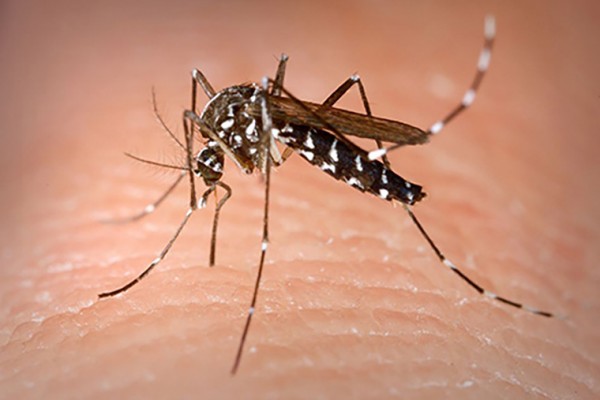Hot on the trail of the Asian tiger mosquito
The Asian tiger mosquito (Aedes albopictus) was spotted in Houston in 1985 but can now be
found in all of the southern states and as far north as Maine. To reconstruct its spread, scientists turned to the new discipline of landscape genetics.
Correlating genetic patterns with landscape patterns, they concluded
that the mosquito had hitched a ride along highways. One of only a handful of landscape genetics studies to track an invasive species, this is the first to detect hitchhiking.
Walk through buildings from your own device
The School of Engineering’s Yasutaka Furukawa, PhD, combines 3-D computer vision of indoor scenes
with the capabilities of Google Maps and Google Earth to create a
unique, high-resolution, photorealistic mapping experience of indoor
spaces. Though he is starting with spaces like the New York museum The Frick Collection, he intends to bring his technology to St. Louis — specifically to
Washington University’s Danforth Campus.
Heart drug may help treat ALS, mouse study shows
Digoxin, a medication that has been used to treat heart
failure, may be adaptable for the treatment of amyotrophic lateral sclerosis
(ALS), a progressive, paralyzing disease, suggests new research at
the School of Medicine.
Three Egyptian mummies receive CT scans
Washington University School of Medicine recently teamed up with the Saint Louis Art Museum and the university’s Mildred Lane Kemper Art Museum to scan some very unusual patients: three Egyptian mummies.
Olin Fellowship Program for Women in Graduate Studies recognizes 40th year on campus
The Mr. and Mrs. Spencer T. Olin Fellowship Program for Women in Graduate Studies is celebrating its 40 years on Washington University’s campus during the 40th annual Olin Fellowship Conference, “How Climates Change,” Oct. 30-31. Jane Lubchenco, PhD, the first woman to head the National Oceanographic and Atmospheric Association, will give the keynote address at 11 a.m. Friday, Oct. 31, in Graham Chapel.
The right to privacy in a big data world
In the digital age in which we live, monitoring,
security breaches and hacks of sensitive data are all too common. It has
been argued that privacy has no place in this big data environment and
anything we put online can and probably will be seen by prying eyes. In
a new paper, noted Washington University in St. Louis privacy law expert Neil M. Richards, JD, makes the
case that when properly understood, privacy rules will be an essential
and valuable part of our digital future.
Thorp installed as Levi-Montalcini Distinguished University Professor
H. Holden Thorp, PhD (left), provost and executive vice chancellor for academic affairs, was installated by Chancellor Mark S. Wrighton as the inaugural holder of the Rita Levi-Montalcini Distinguished University Professorship during a ceremony held Oct. 14 in Knight Hall’s Emerson Auditorium. Thorp’s installation address was titled “Back to the Future: Accomplishment and Aspiration at Washington University.”
World faces looming food and water challenges, say academic researchers
Climate change, water shortages and the loss of
farmland to pollution and urban sprawl are making it increasingly
difficult for farmers to feed the world’s growing population,
agricultural scholars from four continents said this week at an
international symposium held at Washington University in St. Louis.
STL To Do: Rawstock
Janet Owen, technical support specialist in the Sam Fox School of Design & Visual Arts, recommends “Rawstock,” a film festival that highlights entertainingly offbeat materials from the University Libraries’ Film & Media Archive. The event takes place at 8 p.m. Friday, Oct. 24, at Melt, 2712 Cherokee St.
‘Long tail’ thinking can help eliminate health disparities
“Long tail” thinking — a strategy employed by many new businesses — might yield
greater progress the field of public health by eliminating health disparities, according to a
study from the Brown School at Washington University in St. Louis led by Matthew W. Kreuter, PhD.
View More Stories

